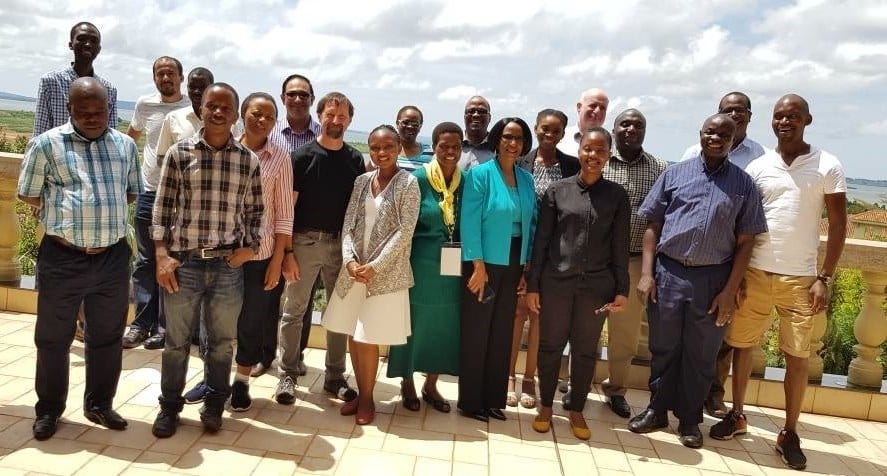Posted By: Sara Cullinan, PhD, Deputy Editor, AJHG
Each month, the editors of The American Journal of Human Genetics interview an author of a recently published paper. This month, we check in with Neil Hanchard, a member of the ASHG Board of Directors and senior author of ‘Whole-Exome Sequencing Reveals Uncaptured Variation and Distinct Ancestry in the Southern African Population of Botswana.’

AJHG: What prompted you to start working on this project?
Neil: Serendipity. The nidus for the project was the Human Heredity and Health in Africa (H3Africa project), sponsored by the NIH and the Wellcome Trust. Some of our institutional partners in Africa approached us about participating in order to gain insights to the genetics underpinning disease progression in childhood HIV, which, unlike its adult counterpart, hasn’t been extensively studied at the genomic level. They needed someone who knew something about genomic studies and Africa, and I happened to be standing nearby (almost literally). As we started looking for genetic variants influencing the phenotype, it became plainly obvious that without a genomic context, particularly for the individuals from Botswana, we would be going in circles.
AJHG: What about this paper/project most excites you?
Neil: Two things. First, the degree of uncaptured variation and the unique demographic features in our populations is exciting – if we can exploit them properly, there’s a real prospect of identifying new genes and variants that are relevant to HIV progression in children – that could be a game-changer; second, all the analyses were done by trainees from Botswana and Uganda. They have since taken that genomics experience and expertise back to their home institutions, which bodes well for the future of genomic research in Africa.
AJHG: Thinking about the bigger picture, what implications do you see from this work for the larger human genetics community?
Neil: I hope it will make researchers and clinicians think more broadly about the genetic diversity across the continent. There’s a tendency in the field to think of ‘Africa’ as represented by the predominantly West African groups in publicly available datasets, but that’s only the proverbial tip of the iceberg. I hope this will give people a better understanding of the depth of diversity and genomic complexity that has to be considered in genetic studies of persons of African heritage.
AJHG: What advice do you have for trainees/young scientists?
Neil: I still think of myself as a ‘young scientist’, so I’d have to fall back on the words of my mentor as I was starting my lab – when I asked him what advice he had for me, he said, very unceremoniously, “don’t give up”. At the time, I recall thinking how incredibly underwhelming a response that was, but over time I’ve grown to see it as a genuine pearl of wisdom for a junior faculty (or trainee) enduring what can sometimes seem like a very long time in the academic wilderness.
AJHG: And for fun, tell us something about your life outside of the lab.
Neil: Is there life outside the lab? (jk!) Mostly, I spend my away-from-the-lab time with my family. Accompanying my wife to the various activities my sons are involved in – be it church choir, baseball, or chess – is really enjoyable. Otherwise, I like sports, so I try to make time to play or watch any of swimming, tennis, baseball, football…and on the few occasions when I get to go on vacation, I’m perfectly happy in Jamaica (where I’m from), reading a book beside the beach and listening to the waves crash.
Neil Hanchard, MD, PhD, FACMG, serves as Early-Career Member of the ASHG Board of Directors. He is an Assistant Professor and Clinical Geneticist at Baylor College of Medicine and Texas Children’s Hospital, and has been a member of ASHG since 2010.
